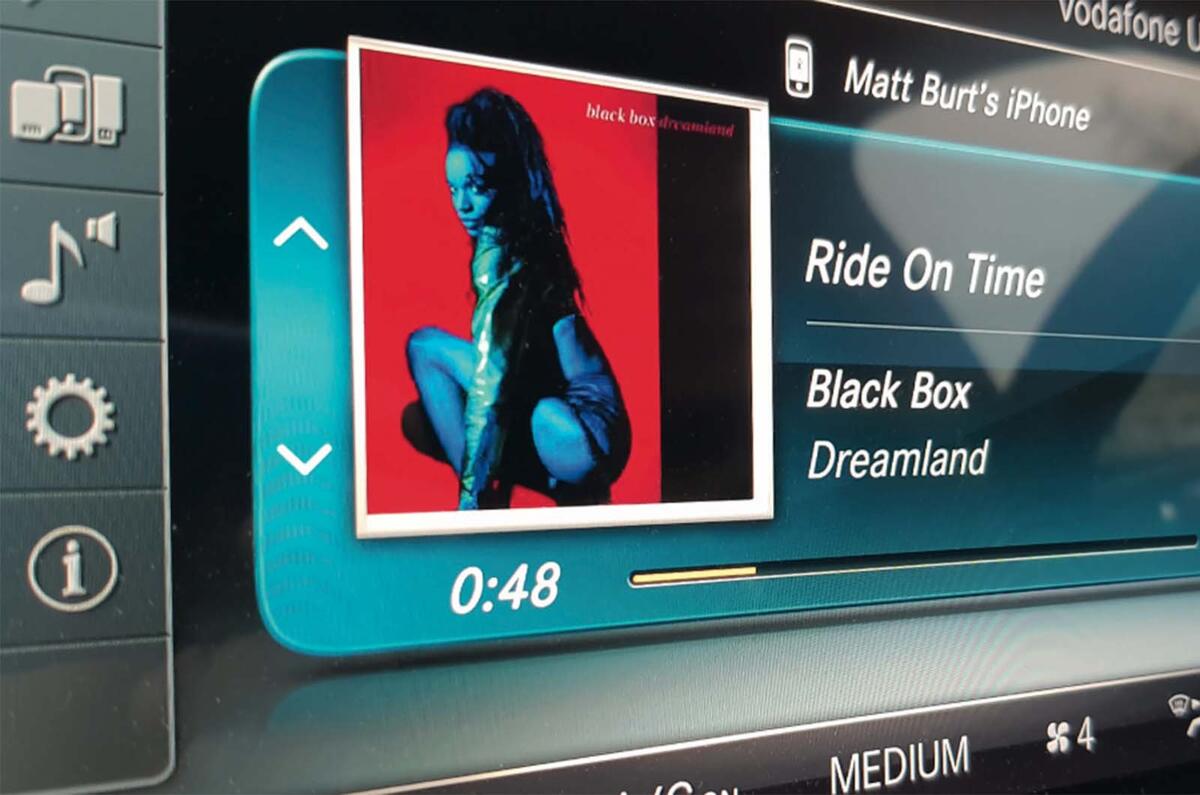When I was younger, if the phrase ‘Black Box’ entered my life, all it meant was that a dance floor was about to get banging to Ride On Time. Choooon, as I believe nobody says any more.
And yet people say today’s youth have it easier. Not so, dear reader. A Black Box has entered the life of my house’s resident 17-year-old, and with it comes peril.
She’s a new driver, see – well done her – and a telematics ‘Black Box’ has been fitted to her car, so her every automotive move is monitored in return for a (marginally) less catastrophic insurance premium, which sits at a mere three times the value of her car.
It means ‘they’ will know how fast she’s going, how hard she’s accelerating, when she’s travelling and even, apparently, whether she tries to wrap the infernal thing in tinfoil. The better she drives, so the blurb goes, the better the score, and next year’s insurance becomes less extortionate. And when you’re old enough for insurance to become unstratospheric, you can get rid. (But, if it meant cheaper insurance for life if you kept it, how many would? Perhaps eventually we’ll all have one. Maybe we’ll have to have one. Shudder.)
But does it make you a better driver? I mean, it knows where you are and how fast you’re going, but it won’t spot the ditherer, the distracted, the clumsy. But I suppose if it makes people think about driving, it’s not such a bad thing. And much as I inherently dislike the idea of third-party interference (who doesn’t?), I think I’m slightly less apprehensive about things knowing it’s in there, and I’m intrigued to try it myself. I’m named on the policy, so I’ll give it a go, see how it rates my driving and what I should do to get a good score and report back. There’s money at stake, after all, and more: I’ll admit it, constant monitoring could have saved my two front teeth and a Mini from simultaneously meeting an uncomfortable end 20 years ago.
Anyway, besides all that, it’s still incredibly gratifying to see somebody enjoy the liberation that comes with being able to take yourself wherever you want to go, whenever you want to go there, without having to rely on the inflexible timetables of railways or your parents. It’s enough to convince me that, monitored or otherwise, driving will remain a valued, enjoyable skill.
Another issue of Autocar will yet be published this year, on 27 December, which I like to think is effectively a public service that exists solely to remind you what day it is during that week when custard is an acceptable breakfast accompaniment.
But regardless, I’ll say it now: thank you for reading the magazine this year and enjoying our stories wherever you find them. I hope you know we never take it for granted, and value now more than everthe best kind of relationship: you like what we do enough to buy the magazine, which makes us able to report to you and you only. I’ll forever be grateful that it lets us test cars properly and write as we find, evenif it upsets someone, so long as that person isn’t you.







Join the debate
Add your comment
The add says........!?
A certain well known Car insurance provider says 7/10 could save £150.00 or more using this device.
Big Brother
Big Brother is watching you. In my opinion, it's a short step from back boxes being used to monitor young drivers to having them report you for driving a bit quickly. From there it becomes very simple for anyone to track the car on the internet and spot when you're out and know the coast is clear to burgle your house.
Many companies fit these things to company vans, and the guys in them absolutely hate them.
A former employer...
...had a fleet of leased vehicles fitted with black boxes; each vehicle had some sort of traffic light system visible from the driving seat. A brief bit of traction control activation, due to a pothole for example, would set off the red light. We used to try to complete as much of the journey as possible 'on the red'.
A bit suprised,
black boxes are not more common, as they have been available now for years. I did think that they would gain enough popularity that the remaining drivers would end up having them forced on them, as insurers would refuse to sell a policy to a non user.
So far this has not happened and I suspect now it been with us for this long, without it becoming compulsory it might not happen at all.
It could still happen by the back door though, as car makers put interactive devices in car's that also track usage and then sell this info to anybody that wants it. So usage details could still end up with the insurers.
Perhaps self driving cars will make this activity less profitable and it will eventually fade out ?
And finally, a Merry Christmas to all from me :-)